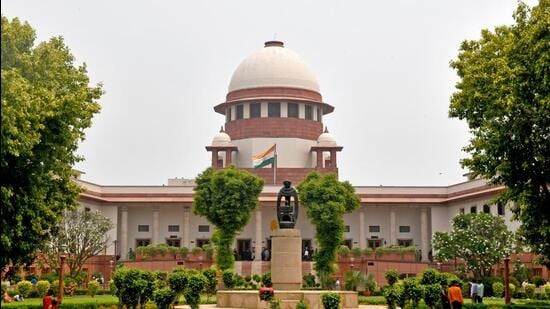Lagatar24 Desk
New Delhi: The Supreme Court of India is set to hear a batch of petitions today, challenging the constitutional validity of specific provisions of the Places of Worship (Special Provisions) Act, 1991. A special bench led by Chief Justice of India Sanjiv Khanna and comprising Justices PV Sanjay Kumar and KV Vishwanathan will convene at 3:30 PM to deliberate on the matter.
The Act, enacted to preserve the religious character of places of worship as they stood on August 15, 1947, prohibits filing lawsuits to reclaim such sites or alter their character. However, the petitioners argue that the Act violates fundamental constitutional principles, including secularism and the rule of law.
Petitioners and Their Claims
Prominent petitioners include Maharaja Kumari Krishna Priya of the Kashi Royal Family, BJP leader Subramanian Swamy, advocate Ashwini Upadhyay, and several religious leaders and individuals from various faiths. They contend that:
•The Act deprives Hindus, Jains, Buddhists, and Sikhs of their rights under Articles 25 and 26 of the Constitution to manage and restore their places of worship and pilgrimage.
•It infringes on Article 29, which protects cultural and religious heritage, by restricting these communities from reclaiming their religious sites and properties.
•The retrospective cut-off date of August 15, 1947, imposed by the Act is arbitrary and irrational.
The petitioners highlight that while the birthplace of Lord Rama in Ayodhya was excluded from the Act, the birthplace of Lord Krishna was not, thereby creating inconsistencies.
Opposition to the Petitions
The Jamiat Ulama-i-Hind and the Indian Muslim Personal Law Board have filed pleas opposing the petitions, arguing that challenging the Act will lead to a flood of litigations against mosques across India, threatening communal harmony.
The Anjuman Intezamia Masjid Committee, managing the mosque in the Gyanvapi complex, has also sought the dismissal of these petitions, emphasizing that the Act reflects India’s commitment to secularism and the maintenance of public order.
Key Provisions Under Challenge
Sections 2, 3, and 4 of the Act are at the heart of the legal dispute:
•Section 3 prohibits the conversion of places of worship from one religious denomination to another.
•Section 4 bars filing new suits or initiating legal proceedings to alter the religious character of places of worship as they existed on August 15, 1947.
Arguments of the Petitioners
The petitioners claim that the Act effectively denies them judicial remedy by barring courts from hearing disputes related to religious sites. They argue that the law deprives them of their right to reclaim properties misappropriated during invasions by fundamentalist rulers, thereby violating the rule of law.
Implications of the Hearing
Today’s hearing holds significant importance as it will address the constitutional conflict between the preservation of secularism and the rights of religious communities to reclaim their cultural and religious heritage.







